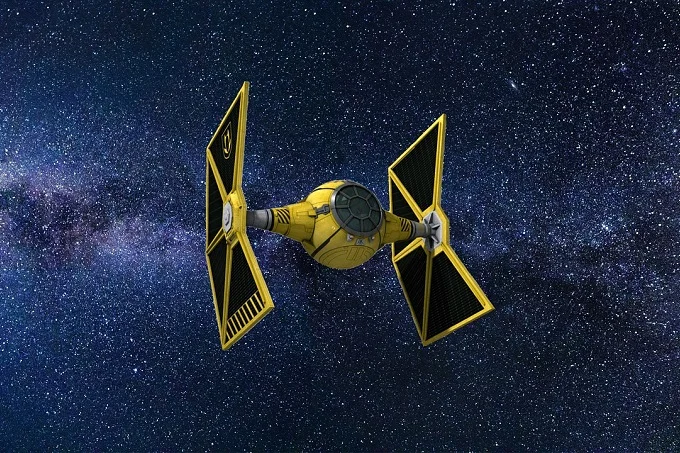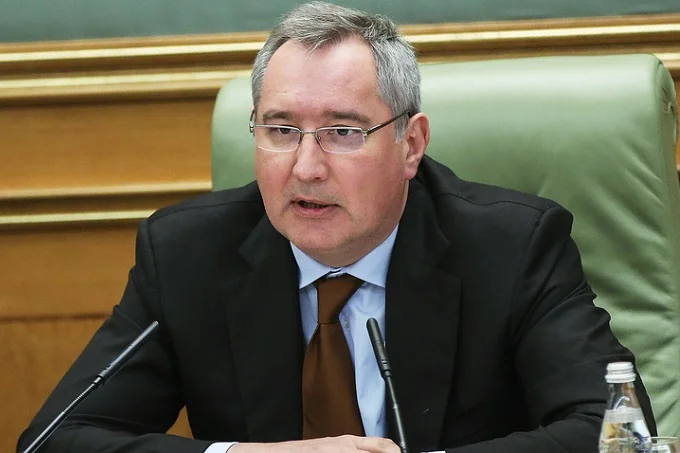Russia declares readiness for space attack

While Moscow is still protesting against the militarization of space, the director-general of the Russian space agency, Dmitry Rogozin, believes that it will be in space if a large-scale war is declared in the future. Furthermore, he assured that Russia is ready to face any threat, even the one coming from space.
Despite its constant opposition to the militarization of space and its criticism of the United States in particular, which admits the possibility of military action in this area, Russia can face and respond to any threat from space, stressed the director-general of Roscosmos, Dmitry Rogozin.
“Russia has experienced so many wars, huge losses, so we are obviously ready to face any attack, including in space,” he reassured.
He explained that, according to analysts, if a next large-scale war occurs, it “will start in space” and the participants in the conflict will try to attack the enemy’s orbital group of satellites to deprive it of the data collected through these devices.
“We are realists, and we know very well that wars are getting better. It used to be that every conflict started at the border. Borders stopped being important when long-range missiles were invented. They were able to strike anywhere, even in the strategic depth of the enemy’s territory,” explained Dmitry Rogozin.
When asked whether the ground systems are capable today of countering an imminent threat, for example, an asteroid from space, which would hit the planet, Dmitry Rogozin answered negatively, judging that “the Western elites think narrowly, in the sense of resistance to Russia, instead of sitting down together at a table and thinking about how to save our planet”.
SpaceX cooperates with the Pentagon
In addition, the head of the Russian space agency recalled that all the latest developments, which Elon Musk’s company SpaceX is carrying out, are related to the Pentagon.
“For example, a beautiful idea, which our enthusiasts immediately supported, is the rapid intercontinental delivery of people. […] Ordinary passengers will never use these services. It is an overload, an emotional shock. It’s all about special forces. To transport specially trained people from one continent to another, these technologies will be good. But it is not to allow humanity to cross an ocean in a few minutes,” explained the director-general of Roscosmos.

Dmitry Rogozin also criticized the idea of Elon Musk to transport nuclear weapons in space under the pretext of terraforming Mars, a process consisting of transforming a celestial body to make it habitable by man. According to the senior Russian official, this idea will end up with the introduction of nuclear weapons into space, but for an attack against an enemy and not for a truly peaceful purpose, such as protection against asteroids or terraforming.
The militarization of space evoked by different countries
The United States has become the first country to acknowledge the possibility of military actions in space. On June 18, 2018, Donald Trump had ordered the Pentagon to create the Space Force as a new independent branch of the country’s armed forces. In January 2019, in the new iteration of the Missile Defense Review, the Pentagon admitted deploying attack elements in space.
This August 29, the United States Space Command (USSPACECOM), disbanded in 2002 under George Bush and recreated on August 29, 2019, under Donald Trump, celebrates its second anniversary. Five days ago, its chief, General James Dickinson, announced that the combat forces he led had enough people and resources to protect US satellites, deter aggression and provide space services to the US military.
Finally, at the end of the Nato summit in London in 2019, it was decided to recognize space as a sphere of activity of the Atlantic Alliance. Before the summit, its Secretary-General, Jens Stoltenberg, explained that Nato was not considering deploying weapons in space but had to consider that this area affects defence and security.
As a reminder, the space treaty, adopted on December 19, 1966, by Resolution No. 2222 of the General Assembly of the United Nations, poses the peaceful use of space and the prohibition of appropriation as a founding principle.
Russia is not in favour of the militarization of space. In mid-June, Vladimir Putin told the American channel NBC that Russia is against the militarization of space, which should be “free of all types of weapons”.




